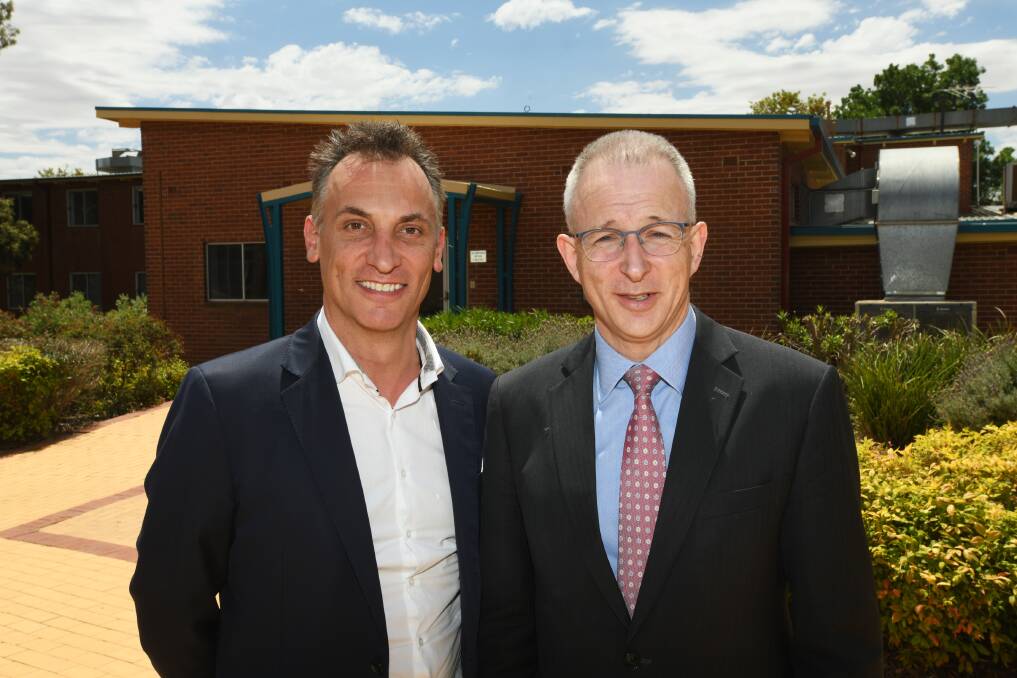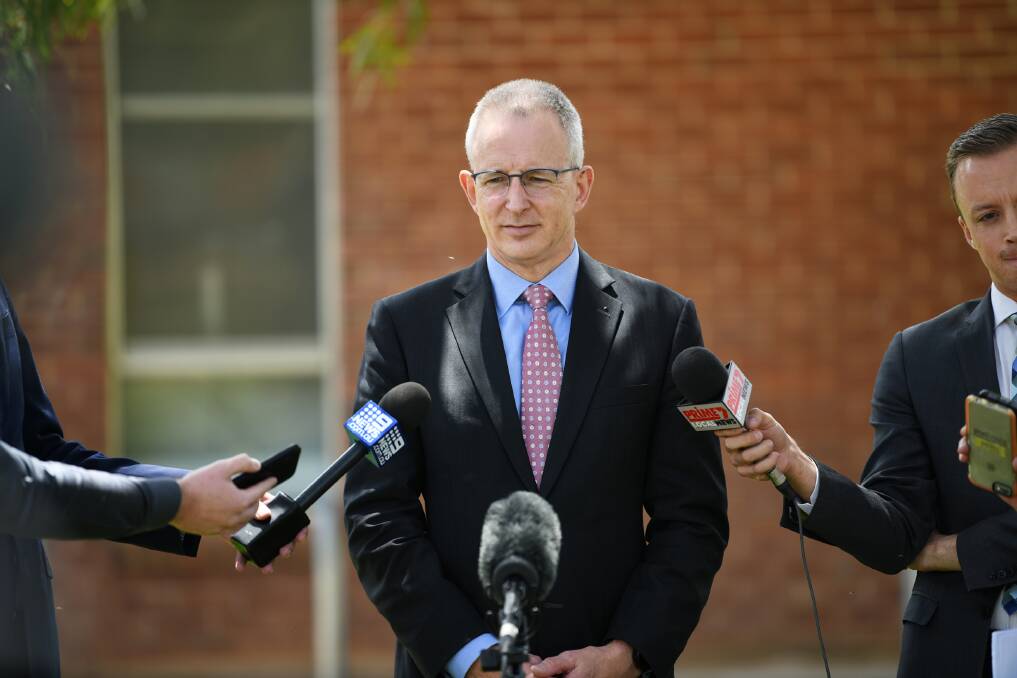
Australian Community Media's executive chairman has called for changes to outdated ownership legislation so regional media outlets "struggling for survival" can combine and conquer.
Subscribe now for unlimited access.
or signup to continue reading
Antony Catalano - who bought ACM from Nine in April and has shares in the Prime Media Group - said consolidating radio, print and TV businesses was key to ensuring regional media companies remained viable.
Mr Catalano's comments came as the future of regional journalism was laid bare at a meeting of media heavyweights, industry stakeholders and government officials in Wagga on Wednesday.
Federal Minister for Communications, Cyber Safety and the Arts Paul Fletcher attended the government-led symposium - on choice and quality of news and journalism - at Charles Sturt University.
Mr Catalano, the ABC's director of news Gaven Morris, Nine Enertainment's managing director of publishing Chris Janz, the WIN Network's news director Stella Lauri and Prime's director of news and current affairs Paul Patrick were among the attendees.
The meeting was held as the government considers the recommendations of the ACCC's recent Inquiry into Digital Platforms.
Mr Catalano said the antiquated one-to-a-market rule, which prevents a company having more than one commercial television broadcasting licence in an area, must change.
"Unless it [the government] changes legislation, what you'll have is a bunch of media players going to zero, rather than consolidation which would protect the industry," he said.
"I don't believe that we need to have three news outlets each producing a news service.
"I think the way that the businesses are structured at the moment, they're all facing increasing content costs [and] decreasing revenues, so they have less and less money to be able to produce quality journalism."
Mr Catalano said many media businesses were operating in a market that was a fraction of the size, in dollar terms, of what it used to be.

"I'm not advocating that we're the only voice, or that there be one voice. I'm advocating that there doesn't need to be the regulation that currently exists," he said.
"It is absurd that ... I can own as many websites as I like, I can own multiple radio licences but I can only own one TV licence.
"That's legislation that harks back to the 50s, when the advent of television made it the Google and Facebook of today. That isn't the case now.
"We are now struggling for survival and to have this one-to-a-market rule makes no sense.
The government should abolish it and it should abolish it ASAP."
Mr Fletcher said the government had introduced far-reaching changes to media regulation and that a series of changes were being seen across the Australian media landscape.
The minister said he was aware of the push for changes to the one-to-a-market rule but was non-committal about any.
"There have been major changes to media regulation, we're seeing media organisations respond and what we need to do is look at the totality of the policy issues that this raises," he said.
Mr Catalano's Wagga visit came as it was revealed interests associated with his and billionaire Alex Waislitz's Thorney Investments had upped their stake in the Prime Media Group, ahead of a planned merger with Seven West Media.
Mr Catalano said while there was "no silver bullet" to ensure the survival of regional media, businesses themselves could also play a role.
"I think we need to re-engage with communities and explain the role that we've traditionally played, the role that we will continue to play in a free democracy," he said.
"If we don't help our communities understand that ... regional and rural Australia will live in the dark about what's happening, their interests will be forgotten, the issues that are important right across regional areas, the rural areas, will never be surfaced at government like they need to be."
The ACCC has made a number of recommendations, including that a targeted grants program be set up to strengthen regional journalism.
The consumer watchdog's final report suggested the direct grants program provide $50 million per annum to support "original journalistic coverage of matters relevant to local and regional communities - such as local courts, local issues and local government"
The grant program would replace the Regional and Small Publishers Jobs and Innovation Package, which is due to end in June 2021.
The ACCC has also suggested philanthropically-funded and not-for-profit journalism could perform a more significant role in addressing the risk of under-provision of public interest journalism.
CSU this week revealed a plan to set up a new student-staffed, public interest-centred regional news service.
Under the proposal, the university would establish a Regional Media Centre at its Bathurst campus.
The centre would act as a hub for a network of communications students across regional NSW who would gather, package and distribute news to other media outlets.
Mr Fletcher said "innovation" should be encouraged.
Have you signed up to the Bendigo Advertiser's daily newsletter and breaking news emails? You can register below and make sure you are up to date with everything that's happening in central Victoria.

